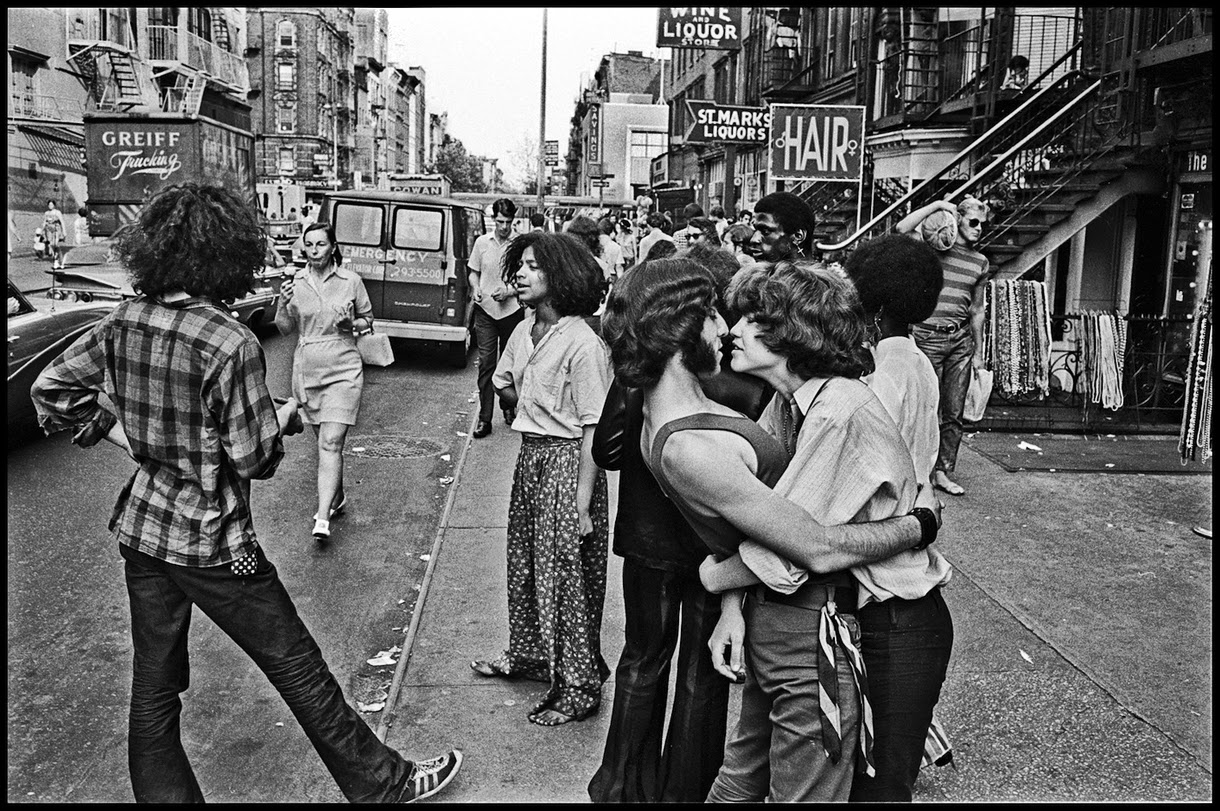
It was a lazy sunny day in the summer of 1968 when I gave in to my brother-in-law’s pleading to visit St. Mark’s Place in New York City to see America’s youth sitting on curbs injecting themselves with heroin. As we came close to our destination, the East Village, I had assured him that no one was going to run up to us and stick a needle in our eye. Once we got to the infamous street, we passed houses where W.H. Auden and Leon Trotsky had once lived and now (1968) were important because the likes of Lenny Bruce and Abbie Hoffman had moved in.
Strolling along in the urban sunshine, I suddenly noticed a gnome-like creature walking on the other side of the street talking with great animation to a rather well-dressed gentleman and two very attractive women. I immediately recognised this character as none other than the French writer Jean Genet. Excited, I turned to my brother-in-law and said: You know I think that’s Jean Genet. He looked very puzzled and I soon realised that he knew nothing of this strange literary hero of the French underworld. Walking a little further, I buttonholed a passerby and again enthusiastically announced my discovery. She also was unimpressed and knowing nothing of Genet’s importance, was quite puzzled with my excitement.
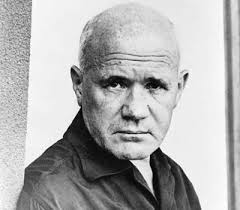
I was not completely confident of my identification, having only recognised Genet from a picture about the size of a postage stamp on the back of a paperback copy of one of his plays I had bought years before. (I think it was The Maids). So I decided to proceed slowly and walked behind the party, wondering if I had been rash in my recognition. Suddenly, I heard French being spoken, which increased my confidence that I have indeed identified this iconic writer casually strolling in the most incongruous of locations.
So, I crossed the street and in time caught up to the group, tapping the diminutive figure on his shoulder asking, Monsieur Genet ? He turned with a strange grin on his face which revealed to me his surprise that anybody had recognised him in New York City. I started a short conversation with him about how excited I was to meet a writer whom I’d heard about for so many years.
We talked for a few seconds about nothing that I can remember except that he was in America to attend the coming Democratic Convention in Chicago. I do know that he seemed to be relishing the fact that he was recognised by someone in the United States. Finally, I got up enough courage to ask him for an autograph and he wrote on a small piece of paper ‘souvenir de Jean Genet’ (see photo) and I was on my way with a big smile on my face.
 One thing I do remember about the encounter. A few seconds after continuing his walk down St.Mark’s Place, Genet called out to me, Hey Joe, to you I am Brigitte Bardot, eh? and laughed with delight. Knowing his reputation as a notorious homosexual, I found the comment to be most comical and explained the irony of the remark to my bemused brother-in-law.
One thing I do remember about the encounter. A few seconds after continuing his walk down St.Mark’s Place, Genet called out to me, Hey Joe, to you I am Brigitte Bardot, eh? and laughed with delight. Knowing his reputation as a notorious homosexual, I found the comment to be most comical and explained the irony of the remark to my bemused brother-in-law.
Later, I was to find out more about Genet’s visit to the USA in August, 1968.
It seems that Esquire Magazine had commissioned four radical writers (Genet, Norman Mailer, Terry Southern and William Burroughs) to record their impressions of the Democratic Convention being held in Chicago from 26-29 August, 1968 only a few days after I met him in New York.
But Genet had trouble entering the USA.
He always maintained that he was obliged to enter the country secretly because the American Embassy in Paris had denied him a visa. Genet’s FBI file provides a fuller picture of his immigration difficulties. On his first application in 1963, he had been issued a visitor’s visa; but ten days later, when a routine investigation revealed his unsavoury past, U.S. Embassy officials revoked the document. Yet, the visa was never physically cancelled, since Genet stubbornly refused to relinquish it. In 1965, when he made a second application for an American visa, his request was summarily rejected. By this time, embassy personnel had ready access to data that made Genet clearly ineligible for entry under three separate sections of the Immigration and Naturalisation Act: he was considered a sexual deviate, had been affiliated with a proscribed organisation and possessed a lengthy criminal record.
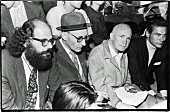
So, in late August 1968 as a guest writer for Esquire, Genet was obliged to enter the USA clandestinely. He travelled by air from Paris to Montreal, where he met Grove Press editor Richard Seaver. He was then driven without incident by a student of literature across the border and on to New York City. After checking into the Biltmore Hotel in Manhattan, he immediately contacted Seaver whom he had specifically requested as his interpreter. Genet and Seaver had been friends since the early 1950s, when Seaver had published excerpts from Notre Dame des fleurs in 1948 in the literary journal Merlin. Seaver had become Genet’s editor at Grove Press and had overseen the American publication of Our Lady of the Flowers in 1961 and The Thief’s journal in 1964. Presumably, it was Seaver who was walking with Genet when I met him in St. Mark’s Place that sunny afternoon.
Genet did go to Chicago and spent the week in the streets and parks of the city with America’s disaffected youth. This stands out as an important early involvement for him in political activism outside of France. In the aftermath, he produced two pieces of writing. First, his recollections of the Chicago visit, “The Members of the Assembly,” published in Esquire in December, 1968 and also “A Salute to 100,000 Stars” in The Evergreen Review the following month. These remain samples of Genet’s first overtly political writing.
For me personally, the Democratic Convention of 1968 in Chicago was a milestone indeed. I watched the proceedings on television in a friend’s house just outside Princeton, New Jersey.
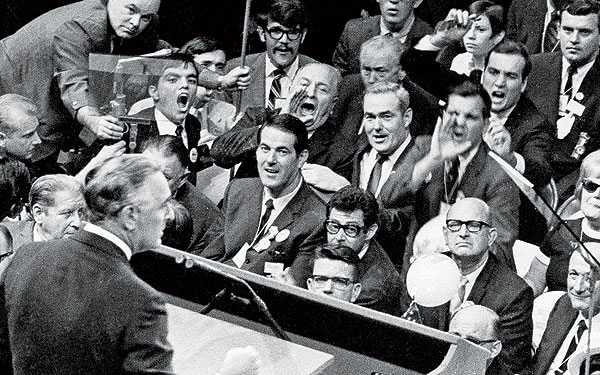
While Mayor Richard Daley shouted obscenities at Senator Abraham Ribicoff on the podium, the Chicago Police used billy clubs and tear gas on anti-war protestors in the streets outside the convention. A few days before, Warsaw Pact troops had invaded Czechoslovakia and there were tanks on the streets of Prague. The reformer leader Alexandr Dubcek had been arrested and with three other leaders were sent to Moscow. I thought the world was coming to an end.
I had just resigned from a position as a research physicist at one of the most prestigious research institutions in the USA – The Radio Corporation of America Research Laboratories in Princeton – and was on my way way to Worcester, Massachusetts to join the faculty of a small liberal arts institution called Clark University. There, my wife and three sons, aged 7, 5 and 1 were waiting for me in our recently-purchased clapboard house in the heart of the industrial town.
It had been a tumultuous year for me and for most Americans of my generation. Martin Luther King had been shot in Memphis in April and my last hero on the political scene, Robert Kennedy, was killed two months later in Los Angeles just after announcing his intention to run for the presidential nomination of the Democratic Party. That event broke my heart. When I heard a colleague (who I respected), lament the next morning that Kennedy’s death would have a negative effect on the stock market, I could not believe my ears. I knew then that the commercial world was not for me. The bus was speeding by and I was not on it. I vowed to quit and take up a position at a university where I might have some involvement with the changes that were occurring in America.
With the words of Simon and Garfunkel’s Mrs. Robinson blasting away on my car radio and the crass remark by my colleague at RCA still ringing in my ears, I continued my journey up the New Jersey Turnpike and on to the New York Thruway, finally reaching the Massachusetts Turnpike. I was on my way to take up a position as Assistant Professor of Physics at Clark and face the next stage of our family’s development in America.
But that’s another story.
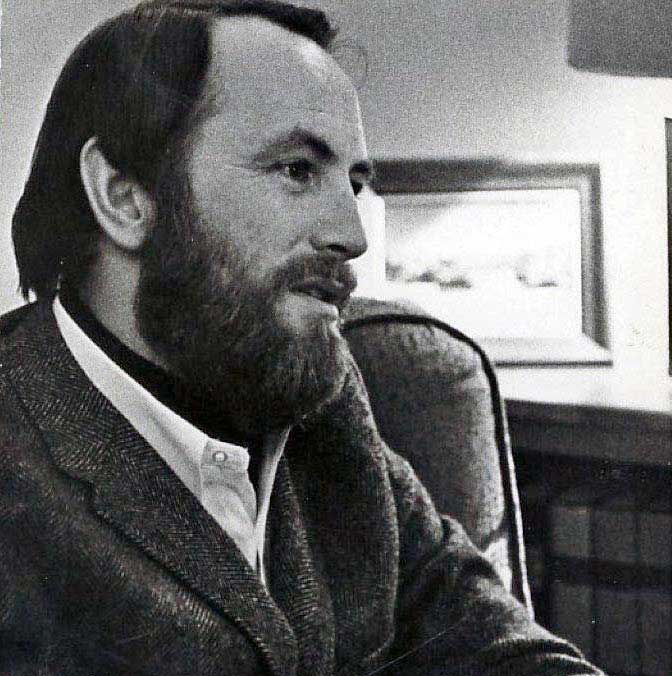
Joe, this is truly rivetting stuff. What freakish and wonderful coincidences. I’m loving it. More please!!
Andrew,
Your Dad would have loved it.
Joe
P.S. My son Joe would love to hear from you. joeylll@btinternet.com
Oooooh and I can’t wait for the next story ! 🙂
Great Dad! Love these little stories. Even after hearing you tell them over the years, the way you write keeps them fresh and engaging. Looking forward to the next one!
Joe, you write with unembellished clarity…..I love it. Keep the blogs coming. Your running the bois buddy….
Joe,
Turtles, Tides & Menstruation. That did it for me. After getting physics from you at ASL I went to Florida Tech, took Oceanography, got a PhD and embarked on a career in marine science. Here I am, what, 39 years later teaching new generations of students. It’s all your fault.
With very fond memories,
Thom
Ted,
We all remember 1968!
Nice to hear from you, hope to see you this summer in Ceserano. Joe
Fascinating piece of history. I remember the village of the 50’s and 60’s . I once saw Bob Dylan watching Jose Felliciano at Gerdes Dolk City but not your iconic sighting of Genet ! Those were the days….,,
Enjoying these post, my dear Uncle. Yesterday I took Maggie and Oliver to see “the theory of everything.” We all loved it. The man playing Hawkings was remarkable. I cried many times by the beauty and the pain of it all and everything it provoked in me. Have you seen it yet? I wonder what you would think of it? Also, who is the brother-in-law you refer to in your post? Wishing you well and dreaming of a visit to see you and the family. It always starts with a dream. Peggy
I only have one brother-in-law, your Dad. I’m sure he remembers that sunny day in NYC.